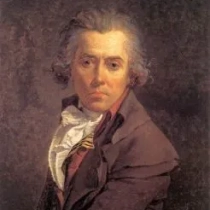 1748 - 1825
neo-classical
1748 - 1825
neo-classical
Description Jacques Louis David
Jacques-Louis David, born on August 30, 1748, in Paris, emerged as a linchpin in the neoclassical movement, transcending the realms of art to become a key figure in the political upheavals of his time. His life, intertwined with the tumultuous events of the French Revolution and its aftermath, reflects a complex interplay between art and politics.
David's early artistic education in Rome immersed him in the classical ideals of ancient art, shaping his aesthetic sensibilities. Returning to Paris, he gained prominence with historical paintings like "Oath of the Horatii," showcasing his mastery of classical composition and emotional intensity.
The French Revolution unfolded as a crucible for David's art and ideology. Embracing revolutionary fervor, he became a fervent supporter, aligning his artistic vision with the revolutionary cause. His painting "The Death of Marat" epitomized this convergence, immortalizing the martyred journalist and revolutionary with a stark, iconic intensity.
David's involvement in revolutionary politics extended beyond the canvas. He served on revolutionary committees, advocating for artistic reform and even voted for the execution of Louis XVI. However, his political allegiance proved precarious as the Revolution's radical phase unfolded, leading to his imprisonment during the Thermidorian Reaction.
Post-Revolution, David's fortunes shifted with the rise of Napoleon. He became the official painter of the First Consul and later the Emperor, producing iconic portraits that sought to convey Napoleon's imperial grandeur. Yet, his loyalty waned as Napoleon's ambitions escalated, and David found himself in exile after the Emperor's fall.
In exile, David's artistic output waned, but his influence persisted. His pupils disseminated neoclassical ideals across Europe, impacting academic art for decades. David returned to Paris in 1817, his political fervor tempered by age and changing times. He spent his final years painting mythological scenes, revisiting the classical themes that had defined his youth.
Jacques-Louis David passed away on December 29, 1825, leaving a legacy that transcends artistic innovation. His life, entwined with the revolutionary zeal that defined an era, reflects the complex relationship between art, politics, and the inexorable march of history. David's artistic vision, from the revolutionary fervor to the imperial splendor, remains a testament to the enduring interplay between creativity and the tumultuous currents of human affairs.
Gallery
Paintings Jacques Louis David
Quotes
To make men what they ought to be, it is necessary to know and appreciate what they are.
The artist must be a philosopher.
I try to make art which celebrates the human spirit, conveys moral messages, and gives life to the characters
The greatest gift that one can give to the people is the monument of independence.
The art of a people is a true mirror to their minds.
F.A.Q Section
"The Oath of the Horatii" (1784): A Neoclassical masterpiece depicting the Roman Horatius family swearing an oath of loyalty.
"The Death of Marat" (1793): A poignant portrayal of the murdered revolutionary Jean-Paul Marat, reflecting the turbulent times of the French Revolution.
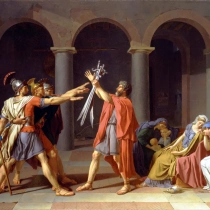
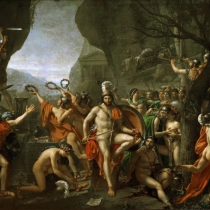
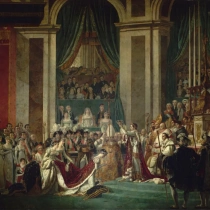
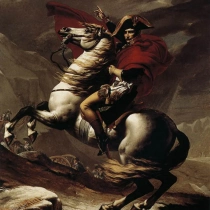
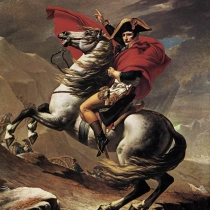
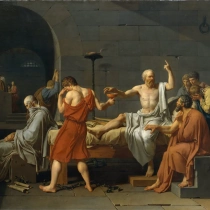
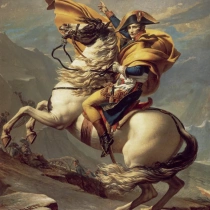
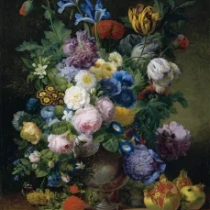
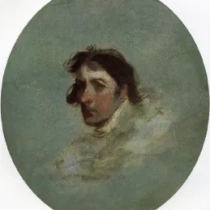
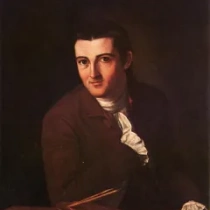
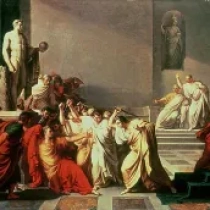
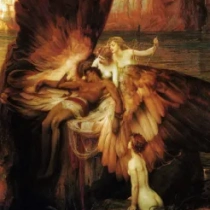
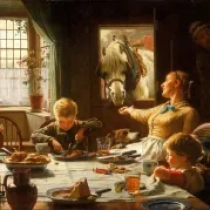
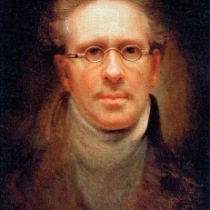
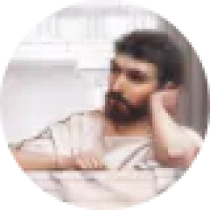
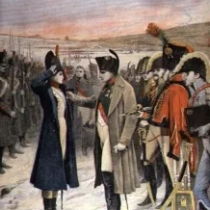
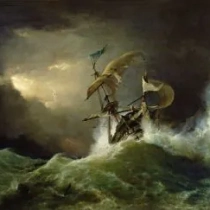
No Comments Yet...